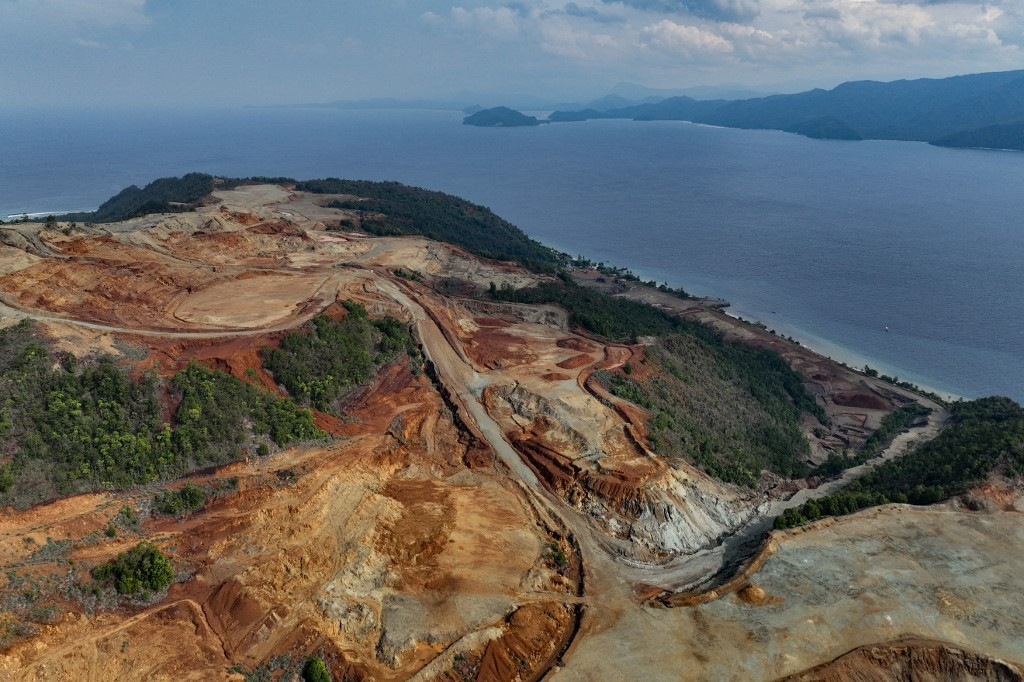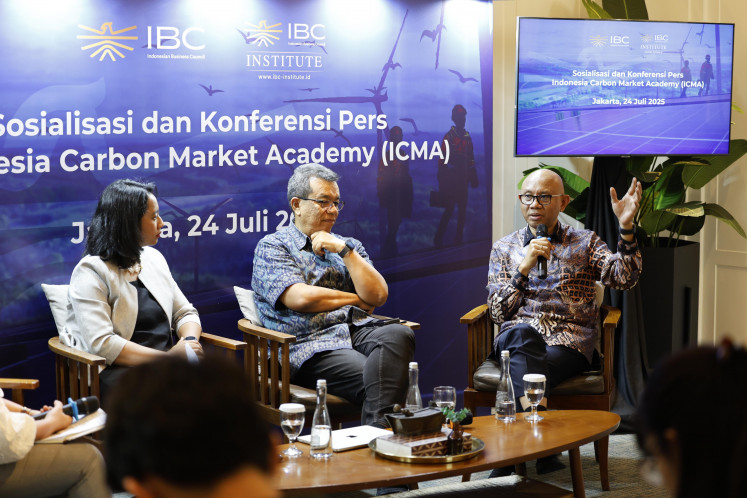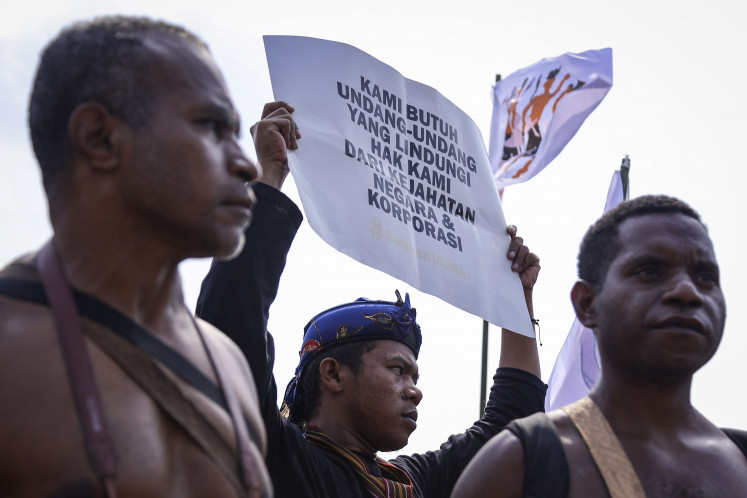Popular Reads
Top Results
Can't find what you're looking for?
View all search resultsPopular Reads
Top Results
Can't find what you're looking for?
View all search resultsThe greenwashing of destruction: Legal action as Raja Ampat’s last hope
Reports suggest mining companies have exerted undue influence over authorities, sometimes even “coopting community leaders as “mouthpieces" to support destructive projects.
Change text size
Gift Premium Articles
to Anyone
R
aja Ampat in Southwest Papua province, home to 75 percent of the world's coral species, is now facing a serious threat from nickel mining on a nearby small island. While activists argue that these mining operations violate laws; the companies involved likely hold valid Mining Business Licenses (IUPK/IUP) for exploration activities.
The core issue is whether the government-issued licenses, particularly those granted to subsidiaries of state-owned mining companies, have fulfilled all mandatory requirements. Legal action is essential to determine whether these requirements, including the Environmental Impact Assessment (Amdal), accurately reflect on-the-ground realities. Through litigation, a court can assess the evidence and determine compliance with applicable laws.
What is happening in Raja Ampat is not just an ecological tragedy; it is illegal. Law No. 1/2014 (amending Law No. 27/2007) on the management of coastal areas and small islands explicitly prohibits mining on small islands, which are defined as those covering no more than 2,000 square kilometers.
This provision was affirmed by Constitutional Court Decision No. 35/2023, which emphasized that mining in such areas can cause irreversible environmental damage and violates the principles of prevention and intergenerational justice.
Despite the clear legal framework, the Energy and Mineral Resources Ministry issued the IUPK/IUP in 2017, which remains valid until 2025. If these mining operations result in the deliberate mass damage of the ecosystem and pose an existential threat to local communities and biodiversity, then serious questions must be asked: Why did the government issue the license in the first place and on what basis was the Amdal approved?
These questions must be answered through taking legal action. Plaintiffs should also investigate the underlying facts, including any conflicts of interest or corrupt practices surrounding the issuance of the mining license in Raja Ampat.
Indonesia’s environmental law and constitution guarantee the right to a clean and healthy environment and place a legal obligation on the government to protect that right. Given the seriousness of the issue, Indonesia’s anticorruption bodies should probe this question vigorously.



















